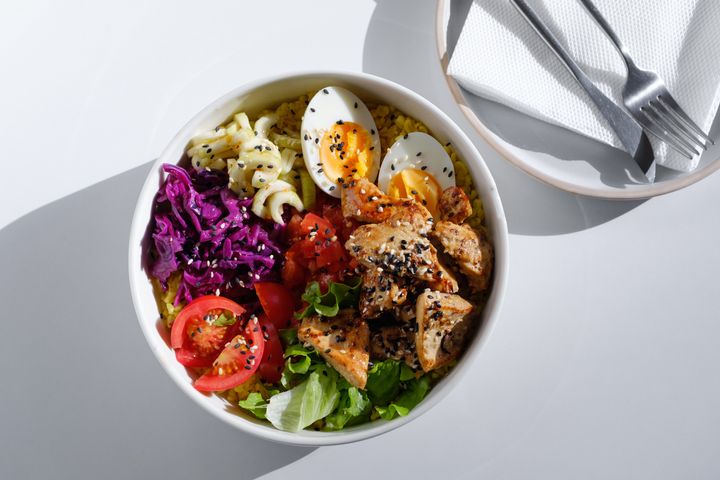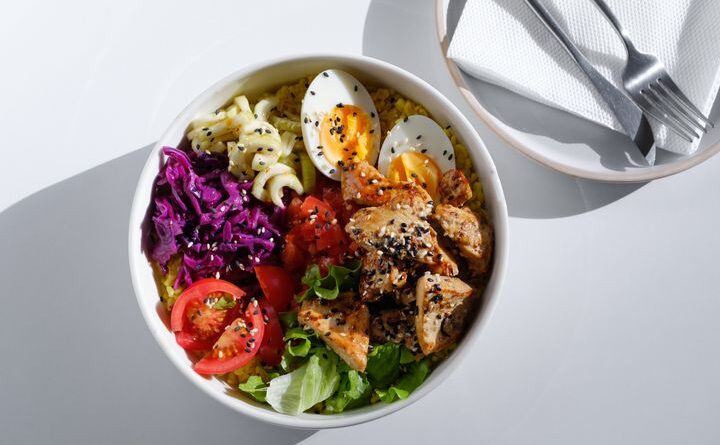There is only one sure way to know if you are eating enough protein.
When searched on Instagram, the word “protein” gets 26.9 million results, many of which are influencers offering benefits or tips for increasing your daily intake.
And these social media people are right – protein is good for you.
“Protein is a macronutrient necessary for the growth, repair and maintenance of body cells,” said Albert Abayev, a registered clinical nutritionist from Cedars-Sinai Weight Management and Metabolic Health Center in California.
“Protein is important in a healthy diet to help maintain appetite, it helps promote muscle recovery, especially in active people or athletes, and it helps the body to repair itself, ” Abayev explained.
How much protein you need will vary based on your gender, size, age and how much you exercise, experts say. But “we don’t need as much protein as many people believe” to maintain muscle mass, said Braeden Yacobucci, a registered dietitian at OnPoint Nutrition in Philadelphia.
Fitness and nutrition personalities on social media are quick to promote protein-rich foods. But the truth is, if your goal is to maintain muscle mass, you are probably eating enough protein without adding things like protein bars and shakes.
“The minimum protein intake is 0.8 grams per kilogram of body weight per day. So, for example, a person weighing 180 kilograms will need 65 grams of protein per day,” Yacobucci said.
This isn’t that much, he noted — 65 grams of protein is about 10 ounces of animal protein each day. “So, take a chicken thigh, for example — about 4 to 6 ounces,” Yacobucci said, so you’d need more than two chicken thighs throughout the day to hit 65 grams of protein. .
“I’m not fat, [and] we still get protein from sources other than animal protein every day,” he said.
For those who work at a desk but work most days of the week, 1 gram per kilogram of body weight is recommended, while 1.6 grams per kilogram is recommended for people who lift weights regularly.
You may be eating enough protein, but tests ordered by your doctor can help you determine that.
Vegans and vegetarians are often people who don’t eat enough protein, Yacobucci said.
The only sure way to know if you’re getting enough protein is through medical tests, such as blood, urine and muscle tissue tests, said Kathleen Melanson, a professor of nutritional science at Rhode University. Island.
Fatigue and a weak immune system are some of the early protein deficiency symptoms, Melanson said — but those, of course, are symptoms of many other issues. (For example, you may be sleep deprived.)
You may also find that you get hungry sooner if you don’t eat enough protein. “Protein is a macronutrient that keeps you full and satisfied,” Abayev said.
Yacobucci noted that fiber can also come into play here. “The two most satisfying nutrients are fiber and protein,” he said. ”[It could be] a condition of not getting enough fiber, perhaps, without protein. ”
You may also notice muscle loss if you don’t get enough protein, Abayev said.
But all of these symptoms are vague and could be the result of other issues as well.
“That’s the tricky part of knowing if you’re getting enough protein,” Melanson said. “Some symptoms, especially in the early stages, are general [and] it can also be seen for other types of conditions. ”
If you’re worried you’re not eating enough protein, maintaining a consistent eating schedule is a good place to start, Abayev said. Foods that include lean meats, fish, poultry, tofu, quinoa, beans, hard-boiled eggs, cheese and low-sodium beef jerky are all good sources of protein, Abayev noted.
You can also work with a registered dietitian, “who can prescribe protein intake over time” and provide feedback, Melanson said.

Aleksandr Zubkov via Getty Images
Many symptoms of protein deficiency take time to appear.
There are signs that you may not be getting enough protein, Yacobucci said — though, since they take a while to appear, take them all with a grain of salt.
He said that symptoms of long-term protein deficiency include thin or dry hair, loss of natural skin color, vertical grooves on the nails, concave nails, slow wound healing and decreased muscle tone. Vegetarians and vegans are at greater risk.
Edema, or swelling of the limbs, is a sign of an advanced protein deficiency, adds Melanson.
While protein-rich foods are all the rage on social media, there is no macronutrient that is king. They are all important.
Protein balls, protein ice cream and protein coffee may sound appealing (and be a good source of protein), but your diet should not be dictated by your protein intake. Instead, you should focus entirely on your nutrition.
“There’s no one macronutrient that’s better or worse than the others — carbohydrates, proteins and fats are all necessary for a healthy diet,” Yacobucci said.
Instead of blindly increasing your protein intake, consider talking to a doctor or nutritionist about your protein needs and circumstances to see if you really need to increase protein-rich foods and snacks. .
#eating #protein
